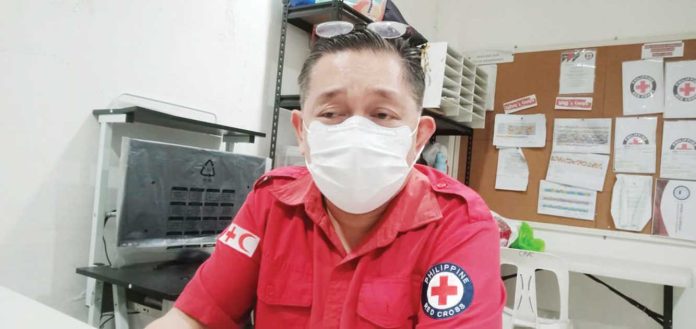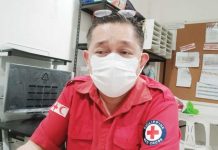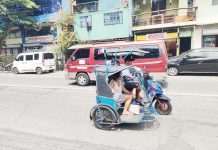
ILOILO City – With dengue cases expected to spike this rainy season, the Philippine Red Cross (PRC) Iloilo Chapter has given its strongest assurance yet: there will be no shortage of blood for those in need.
As hospitals brace for a potential influx of dengue patients requiring transfusions, PRC-Iloilo says its stockpile — and its commitment — are ready to meet the challenge.
Dr. Carlo Nolan Carado, PRC-Iloilo Blood Center manager, said the center is fully capable of supplying blood to 26 hospitals across Iloilo City and the province.
“We can say we have sufficient blood supply for the different hospitals we serve throughout Iloilo,” Carado told Panay News.
The assurance comes as health authorities anticipate a seasonal rise in dengue infections from June to August. Severe cases of dengue often require blood transfusions, particularly of platelet concentrates.
Dengue is a viral infection transmitted through the bite of an infected female Aedes aegypti and Aedes albopictus mosquitoes. Symptoms usually begin three to ten days after the bite and include sudden high fever, severe headache, pain behind the eyes, joint and muscle pain, skin rashes, and bleeding such as nosebleeds or easy bruising.
In its more severe form, dengue can cause a dangerous drop in platelet count and internal bleeding, which may require hospitalization and blood transfusion.
In 2024, PRC-Iloilo exceeded its target collection of 25,000 blood units by gathering 31,000 units — enough to help over 35,000 patients.
This year, they are aiming for the same target, and as of midyear, they’ve already collected around 15 percent.
Carado is optimistic the chapter will surpass the goal again. He attributed the steady increase in blood collections to active partnerships with local government units (LGUs), schools, nongovernment organizations, and the private sector, all of whom regularly organize bloodletting drives.
He also observed a sharp rise in blood donations after the May 12, 2025 midterm elections, once LGU operations returned to full swing.
“Thanks to the continuous advocacy of our partners, more Ilonggos are now willing to donate blood during barangay-level drives,” he added.
The PRC-Iloilo Blood Center on Bonifacio Drive, Iloilo City, is open daily for walk-in donors and can accommodate up to 20 individuals per day.
It also conducts daily mobile blood donation drives, with all blood collected processed into components depending on medical needs.
Dengue patients and their families may directly request blood from PRC-Iloilo. Processing fees are P1,800 for whole blood, P1,500 for packed red blood cells, and P1,000 for platelet concentrate or plasma products.
To prevent dengue, health authorities advise the public to eliminate mosquito breeding sites by removing stagnant water from containers, using mosquito repellents, wearing long-sleeved clothing, and ensuring proper sanitation in homes and communities. Regular fogging operations and the use of mosquito nets are also encouraged, especially in high-risk areas.
With a new set of local chief executives set to assume office on June 30, Carado expressed hope that blood donation advocacy would remain a top priority. PRC-Iloilo is already coordinating with Blood Donor Recruitment Officers in each LGU to sustain grassroots efforts.
To donate blood, one must be between 18 and 60 years old, in good health, and have had at least eight hours of sleep.
Those on maintenance medication, like for high blood pressure, may still donate provided their blood pressure is stable at the time of screening.
“I am asking the help of every Ilonggo. For every unit of blood donated, three lives can be saved. Let’s keep this life-saving advocacy going,” Carado emphasized.
World Blood Donor Day was celebrated last June 14./PN






